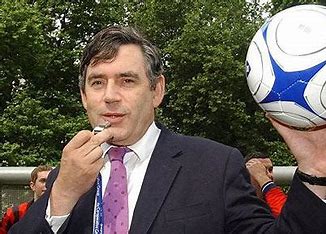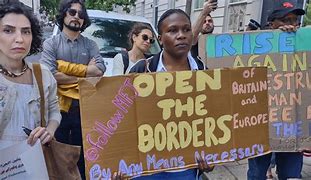
How Britain plans to safeguard against English football being twisted into monster of closed leagues
There are many people who feel that former British Prime Minister Gordon Brown would represent the ideal figure to be the game’s first independent regulator in this country. He is, of course, a former and widely respected Chancellor of the Exchequer so his fiscal qualifications could hardly come any higher.
He has dealt with the most powerful men in the world so he would not be in thrall to the Premier League’s big shots. Most importantly, perhaps, he loves the game. He was brought up with the game and he has lived his whole life supporting his local football club.
At a time when English football gives the impression it needs supporters less and less, Brown would be a champion of the fans and of the idea that clubs need to have closer ties with their communities.
He is robustly non-committal when I put to him the idea he would be the perfect candidate. It would be hard to get much more independent than having a Scot in charge of the English game, after all. Brown smiles at that idea.
“I think it will be someone within the English football system,” he says and moves quickly on.
Brown does have a view, though, on what the independent regulator should look like. He dismisses the fear straight away that he or she would be a puppet of the government of the day and points out that, as American ownership in the Premier League continues to grow, there is more need than ever to safeguard against English football being twisted into a Frankenstein’s monster of closed leagues and All Star Games.
“I have never thought of the regulator as the Government telling people what to do,” says Brown. He adds, “I have always thought of the regulator as speaking for the supporters. I don’t think you should think of the regulator as someone who is chosen by the government to do what the government wants. You have got to think of the regulator as someone who is speaking for supporters and who is chosen because they are the voice of the fans.”
“Nobody is saying the government should choose the regulator. We are saying an independent panel should choose. The regulator will be someone who has an appreciation of the game continuing beyond this ownership or that ownership and building for the future.
“I keep coming back to the pyramid because it’s important to understand the relationship between the grassroots and the lower leagues and the Premier League. Many of the people coming into football from abroad are only interested in the Premier League but the Premier League only thrives because we have so much commitment and voluntary effort going on at the grassroots.
“No matter what surrounds him or her, you have to think of the regulator as an individual you can go to. The back-up for that person could be a whole series of different advisory groups involving supporters but certainly not government officials. The regulator has to be independent of government. It is someone to speak up for the long-term interests of the game that is not influenced by the short-term greed or grievances of particular clubs,” he explains.
In his view, “The work of the regulator is not to destroy the possibility of clubs being profitable but to make sure that the interests of the game in the long term and of supporters are not ignored.”
Brown is concerned that the influx of American owners will continue and that there is still a possibility that one form or another of a European Super League idea could be resuscitated if legislation for a regulator is not passed soon.
“Half the Premier League is part-owned or fully owned by American billionaires,” says Brown, “and with the pound now closer to the level of the dollar and British takeovers possible at knockdown prices, more US billionaires are going to be moving in for the kill. The American invasion is not restricted to football. Household-name companies like Morrisons, Ladbrokes, Coral, GKN and Smiths Medical now trade as US-owned businesses. Big new high-tech firms like Meggitt and Ultra Electronics have been snapped up too,” describes the further the threat football in England faces.
“For American billionaires, it’s like winning the lottery, because with the pound down 20 per cent in just a year they are buying at what, for them, look like bargain basement prices. The Americans are not alone in snapping up Premier League clubs. Saudi Arabia’s Public Investment Fund now owns Newcastle and the United Arab Emirates-based Abu Dhabi United Group are now registering huge profits at Manchester City.
“For them, clubs are trophy prizes and sports-washing tools, but for the Americans, the allure of football is about one thing and one thing only: money. In all areas of commercial life, there is a new demand that if a business is to make profits, it must show greater social purpose.
“And in no area should that be more entrenched than in football, where community links and social responsibility have been the basis of its expansion for over 150 years. So, let’s remind people who care about our football that clubs are like families, not like casinos or gambling joints.
Football clubs are places where, at their best, people come together, cultivate teamwork, build team spirit, find role models and celebrate all that a community has in common.
“That is something that is worth preserving and the best way of preserving it is by continuing to press for the independent regulator.
- Daily Mail report











